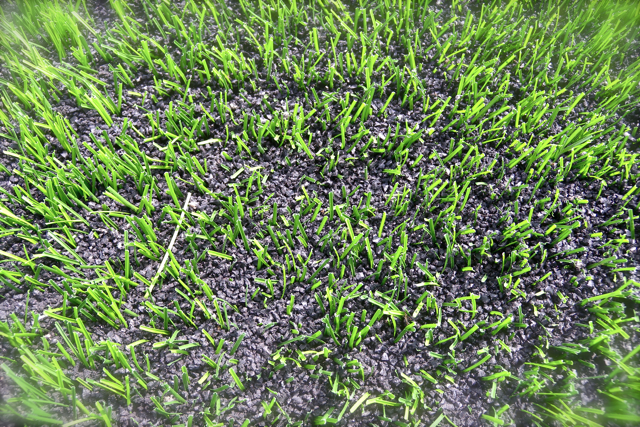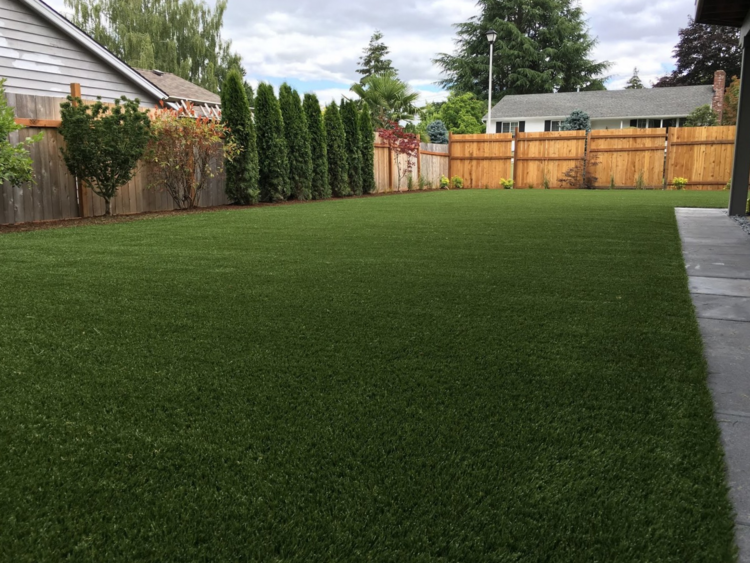Look Into the Environmental Conveniences of Opting for Synthetic Grass Solutions
The adoption of man-made lawn services provides a compelling possibility to address pushing environmental obstacles. By significantly decreasing water usage and reducing the application of harmful chemicals, these choices not just promote sustainable landscaping yet also shield neighborhood communities.
Water Conservation Benefits
One of the most significant advantages of man-made lawn is its ability to preserve water. In comparison, synthetic turf does not require watering, significantly minimizing the total need for water resources.
By eliminating the need for normal watering, synthetic grass contributes to lasting landscape techniques and helps alleviate the ecological effect of too much water usage. Moreover, the conservation of water expands to the decrease of drainage, which can result in soil disintegration and river pollution.
Furthermore, the installment of man-made grass allows house owners and districts to designate water resources more efficiently, concentrating on important usages such as alcohol consumption water and farming. The change towards synthetic grass not only advertises responsible water usage yet also lines up with more comprehensive environmental objectives aimed at preserving natural deposits.
As neighborhoods progressively focus on sustainability, the water conservation benefits of synthetic lawn offer an engaging situation for its adoption in property and business landscape design tasks.
Minimized Chemical Usage
The shift to man-made turf substantially reduces the dependence on chemical therapies commonly used in natural yard maintenance. Typical lawn management usually entails the application of plant foods, chemicals, and herbicides to advertise growth and control pests. These chemicals can position risks to human health, neighborhood wildlife, and the setting, adding to dirt and water contamination.
On the other hand, fabricated lawn gets rid of the demand for these unsafe substances. As soon as mounted, it requires very little upkeep, mainly being composed of normal cleaning and occasional infill replenishment. This reduction in chemical usage not only benefits the immediate atmosphere however additionally adds to broader eco-friendly security. By reducing the launch of artificial compounds into the environment, man-made lawn advertises healthier soil and water supply.
Furthermore, the absence of chemical runoff related to fabricated turf installments aids safeguard local waterways from contamination, sustaining water life and keeping biodiversity. Phoenix turf companies. As neighborhoods increasingly focus on lasting techniques, selecting synthetic grass presents a sensible service that lines up with ecological preservation objectives. Via this change, homeowner can enjoy rich eco-friendly areas without compromising environmental health, paving the method for an extra lasting future
Reduced Carbon Footprint

Furthermore, the setup of synthetic grass can cause substantial water preservation. All-natural lawns call for significant quantities of water for watering, which not just adds to the carbon footprint related to water extraction and therapy however also pressures local water sources. On the other hand, synthetic grass requires minimal maintenance, calling for no watering, therefore significantly decreasing water usage and its connected power prices.
In addition, the long life of fabricated lawn adds to its decreased carbon impact. With a lifespan of approximately go to this website 15 years or even more, the demand for frequent replacements is reduced, causing less waste and reduced power consumption in manufacturing and dealing with standard grass choices. On the whole, fabricated lawn provides a lasting option for environmentally mindful landscape design.
Environment Conservation
Environment preservation is an important factor to consider in the debate over landscaping options, specifically when comparing synthetic grass to natural turf. Natural turf yards frequently need extensive upkeep, consisting of making use of herbicides, plant foods, and pesticides, which can detrimentally impact neighborhood environments. These chemicals can leach into the soil and waterways, harming indigenous flora and fauna and interrupting neighborhood habitats.
In comparison, synthetic grass provides a possibility to lower the eco-friendly footprint of landscaping. By going with synthetic lawn, house owners can reduce the disturbance of natural environments connected with typical yard treatment methods. Synthetic grass gets rid of the need for unsafe chemicals, thereby safeguarding nearby wildlife and preserving the integrity of surrounding environments. The setup of artificial lawn can lead to the conversion of previous yard locations into more biodiverse landscapes, such as pollinator yards or native plant areas, which can support regional wildlife.
Ultimately, the change to synthetic grass not only preserves water and minimizes upkeep initiatives yet likewise promotes an extra harmonious partnership between human activities and the all-natural setting, advertising habitat preservation at the same time.
Long-Term Sustainability
Lasting sustainability is a crucial consider examining the advantages of synthetic grass over standard yard lawns. Among one of the most significant advantages of synthetic grass is its longevity; it can last approximately 15-20 years with very little maintenance, whereas all-natural lawn calls for regular reseeding and substitute. This long life decreases the demand for consistent sources, such as water, fertilizers, and chemicals, which are necessary for preserving a healthy yard yard.
In addition, man-made lawn contributes to a decrease in carbon discharges associated with lawn treatment tools. Typical grass often require gas-powered lawn mowers, leaners, and blowers, all of which add to air pollution. Phoenix turf companies. On the other hand, man-made grass gets rid of the demand for such equipment, promoting a cleaner environment
Moreover, the production of synthetic lawn increasingly utilizes recycled products, improving its sustainability account. As producers take on eco-friendly methods, the environmental impact of synthetic grass proceeds to decrease.

Final Thought
The adoption of synthetic grass services offers significant ecological advantages, including substantial water conservation, lowered reliance on dangerous chemicals, and a lower carbon footprint. Man-made grass help in protecting natural habitats by reducing land disturbance and promoting long-lasting sustainability through the usage of long lasting products. Collectively, these variables emphasize description the potential of synthetic grass to contribute favorably to environmental health and supply a viable alternative to conventional landscape design techniques in a progressively resource-conscious world.
In comparison, artificial lawn does not require watering, considerably lowering the overall need for water sources. By lessening the release of artificial compounds right into the ecological community, fabricated turf advertises healthier soil and water systems.
Additionally, the setup of man-made grass can result in substantial water conservation. In comparison, man-made grass needs very little upkeep, requiring no watering, consequently considerably lowering water usage and its connected power prices.

Comments on “Find Reputable Artificial Turf Companies Phoenix for Your Landscaping Needs”